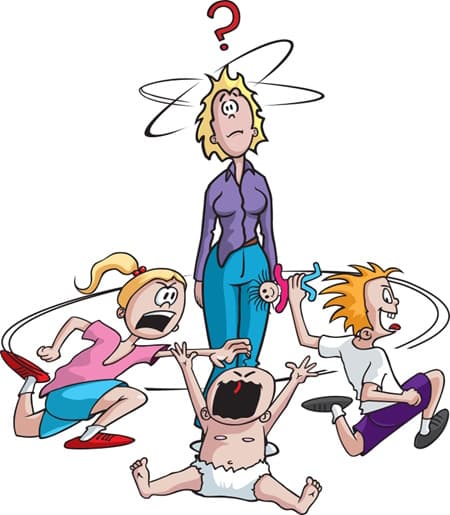- Home
- Children & Divorce
- Child Behavior During Divorce
Understanding Child Behavior During Divorce
Trying to understand and interpret child behavior during divorce can cause some parents to jump to conclusions. How children react to divorce can vary widely depending on their age, personality, and how much animosity there is between their parents. Here’s a general overview of how children at different ages might react:
- Preschool: Children this young may not fully understand what divorce means and how it will affect their home environment. Some of their behaviors may regress and they may become clingier. They might also worry they caused the divorce by misbehaving.
- Grade School: Children in this age group generally experience sadness and loss over the breakup of their family and might fantasize about their parents getting back together. They may also feel torn between their parents and struggle with the need to be loyal to both. School performance may suffer as they try to deal with the emotional fallout of their parents’ divorce.
- Junior High: Teenagers often become angry at their parents for the divorce and sometimes blame one parent over the other. Some teens may start to rebel against parental authority and engage in risky behaviors. Their parent’s divorce may also color their view of marriage in general.
- High School: Older teens are better at understanding how relationships can fall apart and may be more empathetic to their parents’ situation. Despite their greater understanding, their moods will probably swing a lot and they may need support during the changes that divorce brings. They may also worry about their own romantic relationships or develop a fear of commitment.
You may also be wondering if your son or daughter is acting a certain way because of something your ex has done. You might even begin to suspect that your ex is trying to alienate your child from you, or that your child has been exposed to inappropriate situations.
Before you jump to conclusions though, read through the following article which discusses some normal child behavior during divorce.
Normal Childhood Behavior Misconstrued
by Gary Direnfeld, MSW, RSW

There is a quote attributed to Sigmund Freud, “Sometimes a cigar is just a cigar”. So too of childhood behavior and incidents; they may be simply within the range of normal childhood life. However, in the context of high conflict separated parents, the simple explanation can get transplanted with extraordinary suspicions and theories.
Toddler Behavior
Normal childhood development has toddler-age children exploring their bodies, discovering the genitals and anus and taking pleasure from self-touching. They are at the toilet training stage of life and hence are drawn by normal parenting behavior to attend to these body parts.
In intact families as children are observed to engage in self-stimulation and genital play, they are simply redirected to either stop, or to engage privately at appropriate time and place. In the context of high conflict separated parents, there is a risk to ascribe these childhood behaviors to sinister behavior on the part of one of the parents. So a parent may inadvertently bring greater attention to the child’s behavior and thus actually reinforce the concerning behavior themselves while at the same time alleging sexual abuse at the hands of the other parent.
The Bumps and Bruises of Preschoolers
As preschoolers, children take flight on playground equipment. They may be learning to ride their two-wheeler. Hence this is a time of childhood injuries, particularly bruises, bumped heads and broken arms.
In the context of high conflict separated parents, a parent may be suspicious of child-abuse in view of injuries and use the situation to allege physical abuse or at least neglect. However, and again, even in intact families, children can get hurt; bump their heads and fall from bikes and playground equipment.
The Ploys of School Age Children
As school age children try to get their own way, they naturally try to pit parents against each other. They will use whatever strategy works. Kids may tell you that other kids are getting or doing what is desired or they may tell you that the “other parent” let’s them do as requested.
In intact families, parents simply call their children on manipulative behavior or at least check with the other parent to determine if what the child is saying is true. However, in the context of high conflict separated parents, a parent may take what a child says at face value and believe that the other parent is undermining their own parenting or the values of the child.
Varying Interpretations of Child Behavior During Divorce
In intact families or even between separated parents with good communication, normal childhood events tend not to escalate with suspicion and drama. Issues are nipped in the bud and children are redirected to appropriate behavior. Injuries are attended to without additional fanfare. A parent may feel guilty for a child’s injury, but not blamed per se.
In the context of high conflict separated parents, normal childhood behavior and incidents can take on epic proportions. Otherwise normal behavior can lead to suspicion or be used against a parent to undermine care and custody.
As one parent cries foul, the other cries parental alienation syndrome. The fight is on and heats up to the point of boiling over. The child is caught in the middle and their behavior escalates as a result. Both parents then use the child’s behavior as evidence of their own claim against the other.
Here is where a good assessment is so necessary. The assessor will tease out normal from abnormal childhood behavior and incidents and determine how much of a child’s behavior is attributable to just the conflict between the parents versus truly sinister behavior deliberately aimed at harming or neglecting a child.
Parents beware though. Sometimes a cigar is just a cigar, despite suspicion.
The articles below provide additional insight into the issues of child behavior during divorce:
Children's Reaction to Divorce
